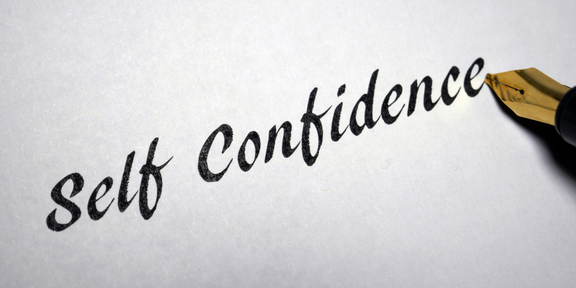Welcome to the ultimate guide on self-confidence building, a critical aspect of personal growth. Self-confidence is the belief in oneself- the ability to trust, feel assured, and be certain about oneself. It is the foundation of a fulfilling life and unlocks endless opportunities.
Mastering self-confidence is a journey that requires self-reflection, hard work, and perseverance. The good news is that building self-confidence is possible for everyone, regardless of their current level.
Table of Contents
Understanding Self-Confidence
Self-confidence is the belief in oneself and one’s ability to achieve goals. It refers to the assurance and trust in one’s own abilities, qualities, and judgment. A healthy level of self-confidence allows individuals to take risks, handle challenges, and bounce back from failure.
Improving self-confidence is essential for boosting self-esteem, enhancing personal growth, and achieving success in various aspects of life. Self-confidence is not something that one is born with, but rather, it is an attitude and skill that can be developed with effort and practice.
To improve self-confidence, it is crucial to understand the factors that contribute to it. Some of the factors include upbringing, past experiences, and beliefs. Limiting beliefs are self-doubts and negative thoughts that hinder self-confidence. Identifying and overcoming limiting beliefs is one of the first steps towards improving self-confidence.
Understanding Self-Confidence: Key Points
| Key Points | Details |
|---|---|
| The importance of self-confidence | Self-confidence is crucial for personal growth and success. |
| The definition of self-confidence | Self-confidence is the belief in oneself and one’s ability to achieve goals. |
| The role of self-confidence in self-esteem | Self-confidence contributes to enhancing self-esteem and self-worth. |
| Factors that contribute to self-confidence | Upbringing, past experiences, and beliefs are some of the factors that contribute to self-confidence. |
| Limiting beliefs | Limiting beliefs are self-doubts and negative thoughts that hinder self-confidence. |
“To be yourself in a world that is constantly trying to make you something else is the greatest accomplishment.” – Ralph Waldo Emerson
Self-confidence is a journey that requires effort and commitment. It is not a destination but a continuous process of growth and development. Understanding self-confidence and its importance is the first step towards mastering it.

Identifying Limiting Beliefs
Identifying and overcoming limiting beliefs is crucial to building self-confidence. Limiting beliefs are negative thoughts and attitudes that hold us back from achieving our full potential.
Common limiting beliefs include:
- I am not good enough
- I am not smart enough
- I am not capable enough
- I will never succeed
These thoughts can be deeply ingrained and may stem from childhood experiences, cultural or societal messaging, or personal insecurities. Whatever the source, it is essential to identify and challenge these beliefs in order to build self-confidence.
One approach to identifying limiting beliefs is to keep a journal of negative thoughts and self-talk. This can help you become more aware of your patterns of thinking and the beliefs that are holding you back.
Once you have identified a limiting belief, challenge it by asking yourself the following questions:
- Is this belief based on fact or opinion?
- Where did this belief come from?
- What evidence do I have to support or refute this belief?
- What would I say to a friend who expressed this belief?
By challenging your limiting beliefs, you can begin to replace them with more positive and affirming thoughts. This process takes time and practice, but with persistence, you can overcome the beliefs that are holding you back and build self-confidence.

Setting Realistic Goals
If you want to boost your self-confidence, one of the most effective strategies is to set realistic goals. Goals provide a sense of direction and purpose, and they give you something to work towards. However, it’s important to set goals that are achievable and realistic, or you risk setting yourself up for failure and disappointment.
Here are some tips for setting goals that will help you build your self-confidence:
- Start small. Begin with small, attainable goals that you can work towards in the short term. As you achieve these goals, you’ll gain confidence in your abilities and be more likely to take on bigger challenges.
- Make them specific. Vague goals are hard to achieve because it’s unclear what you’re working towards. Be specific about what you want to accomplish and how you plan to do it.
- Write them down. Writing down your goals makes them more concrete and helps you stay focused. Put your goals somewhere visible so you’re reminded of them regularly.
- Break them down. Large goals can be overwhelming, so break them down into smaller, manageable pieces. This will make your goals feel less daunting and more achievable.
- Be flexible. It’s important to be adaptable and adjust your goals as necessary. If you encounter obstacles or your circumstances change, don’t be afraid to revise your goals so they remain realistic.
Remember, setting goals is only the first step. To boost your self-confidence, you also need to take action towards achieving those goals. Celebrate your successes along the way, and don’t be too hard on yourself if you experience setbacks. Keep moving forward towards your goals, and you’ll build the self-confidence you need to succeed.

Cultivating Positive Self-Talk
One of the most powerful tools for building self-confidence is positive self-talk. This technique involves consciously changing your internal dialogue to focus on your strengths, achievements, and potential.
Here are some techniques for cultivating positive self-talk:
- Affirmations: Write down affirmations or positive statements about yourself and repeat them daily. Examples include “I am confident in my abilities” or “I am worthy of success.”
- Visualization: Imagine yourself succeeding and achieving your goals. Use all your senses to make the visualization as vivid as possible.
- Gratitude: Focus on what you are grateful for in your life. This helps shift your mindset from negative to positive.
Remember: Your thoughts are powerful. By changing the way you think, you can change the way you feel and act. It takes practice and patience to develop positive self-talk habits, but the results are worth it.
Developing a Growth Mindset
Developing a growth mindset is a crucial element in building self-confidence. A growth mindset is the belief that our abilities can be developed through hard work and dedication. It is about understanding that failures and challenges are opportunities for growth and learning.
People with a growth mindset approach challenges with enthusiasm and perseverance. They see mistakes as opportunities to learn and grow, rather than as a reflection of their abilities. By developing a growth mindset, you can transform the way you think about yourself and your potential, which can increase your self-confidence.
How to Develop a Growth Mindset
Here are some tips on how to develop a growth mindset:
- Embrace challenges: Seek out challenges that push you out of your comfort zone. Rather than avoiding difficulties, approach them with enthusiasm and see them as an opportunity to learn and grow.
- Learn from failures: Rather than beating yourself up over failures, view them as opportunities to learn and improve. Reflect on what went wrong and use that knowledge to improve your future outcomes.
- Practice perseverance: Keep going, even when things get tough. Develop a “growth mindset muscle” by working through difficult tasks and remaining optimistic, even when progress seems slow.
- Cultivate curiosity: Stay open-minded and curious about new ideas and perspectives. Continuously seek out new knowledge and learning opportunities to expand your horizons.
- Challenge negative self-talk: Recognize when negative self-talk is holding you back and replace it with positive affirmations. Instead of saying “I can’t do this,” try saying “I haven’t figured this out yet, but I will keep trying.”
By implementing these strategies, you can start developing a growth mindset and building your self-confidence. Remember that changing your mindset requires time and practice, but the results are worth it. With a growth mindset, you can achieve anything you set your mind to!

Overcoming Fear of Failure
Fear of failure can be a major obstacle in building self-confidence. It can hold you back from taking risks and pursuing your goals. However, it is important to remember that failure is a natural part of the learning process, and that success often comes after overcoming obstacles.
One strategy for overcoming the fear of failure is to reframe your mindset. Instead of focusing on the negative outcomes of failure, try to see it as an opportunity for growth and learning. Instead of telling yourself “I will fail,” try reframing it to “I will learn from my mistakes.”
Another helpful strategy is to break down your goals into smaller, more manageable steps. This can help you feel less overwhelmed and more confident in your abilities. Celebrate each small victory along the way, and use those successes to build momentum towards your larger goals.
It can also be helpful to seek out support from others. Surround yourself with people who encourage and uplift you, and who believe in your abilities. Remember that you are not alone in your struggles, and that many successful people have faced failure along the way.
Finally, practice self-compassion. Treat yourself with kindness and understanding, and be gentle with yourself when things don’t go as planned. Remember that everyone makes mistakes, and that it is okay to fail.
By reframing your mindset, breaking down your goals, seeking support, and practicing self-compassion, you can overcome the fear of failure and build your self-confidence.

Building Resilience
Resilience is the ability to recover from setbacks and face challenges with a positive outlook. It’s a crucial trait to develop when building self-confidence. Here are some exercises and techniques you can use to build resilience:
1. Embrace Failure
Failure is not the opposite of success; it’s a stepping stone towards success. Don’t let fear of failure hold you back from pursuing your goals. Instead, embrace failure as an opportunity to learn and grow.
2. Practice Self-Compassion
Self-compassion involves being kind and understanding towards yourself, especially during difficult times. Treat yourself with the same care and compassion you would offer a close friend.
3. Build a Support System
Surround yourself with people who uplift and support you. Having a strong support system can provide encouragement and motivation when facing challenges.
4. Practice Mindfulness
Mindfulness is the practice of being present in the moment and accepting things as they are. It can help you stay calm and centered during stressful situations.
5. Take Care of Your Physical Health
Physical health and mental health are closely linked. Make sure you’re getting enough sleep, eating healthy foods, and engaging in regular physical activity.
6. Set Realistic Goals
Setting realistic goals and working towards them can provide a sense of accomplishment and boost self-confidence. Break larger goals into smaller, achievable steps to avoid feeling overwhelmed.
By building resilience, you’ll be better equipped to handle setbacks and challenges, and you’ll develop a stronger sense of self-confidence.

Nurturing Supportive Relationships
Building self-confidence can be a difficult journey, but it’s one that is made easier with the support of others. Nurturing supportive relationships is a critical aspect of self-confidence development, as it provides an individual with a sense of belonging and a support system to turn to during challenging times.
Surrounding oneself with positive influences is the key to developing supportive relationships. Seek out individuals who uplift and inspire you, and spend time with those who genuinely care for your well-being. In addition to building your own network of supportive relationships, it’s also essential to be a supportive friend to others. By uplifting and inspiring those around you, you’ll create a positive cycle of energy that benefits everyone involved.
Tips for Nurturing Supportive Relationships
Here are some tips for building and nurturing supportive relationships:
| Tip | Description |
|---|---|
| Practice active listening | When engaging with others, make a conscious effort to actively listen and understand their perspectives and experiences. |
| Show empathy | Express understanding and compassion for others’ feelings and experiences, and offer support and encouragement when needed. |
| Communicate honestly and respectfully | Be open and transparent in communication, but do so in a respectful and non-judgmental way. |
| Set healthy boundaries | Be clear about your own boundaries, and respect the boundaries of others. |
| Offer help and support | Be proactive in offering help and support to those in need, and be willing to ask for help when you need it. |
By nurturing supportive relationships, you’ll create a strong foundation for personal growth and self-confidence building. Remember, self-confidence development is not a journey that you need to take alone; by surrounding yourself with positive influences and supportive individuals, you’ll be well on your way to achieving your goals and unleashing your full potential.

Practicing Self-Care
Self-confidence is closely tied to self-care. When you take care of yourself, you demonstrate your own worth and create a positive cycle of self-esteem and self-reinforcement. Here are some self-care strategies to help you build and maintain self-confidence:
| Self-Care Strategy | Description |
|---|---|
| Exercise regularly | Physical exercise releases endorphins, the “feel-good” chemicals in your brain. Exercise can help reduce stress, boost self-esteem, and improve overall health. |
| Get enough sleep | Lack of sleep can contribute to anxiety, irritability, and low mood. Aim for 7-9 hours of sleep per night to feel refreshed and energized. |
| Eat a balanced diet | What you eat can impact your mood and energy levels. Focus on a diet rich in whole foods, fruits, vegetables, and lean proteins to nourish your body and mind. |
| Practice relaxation techniques | Yoga, meditation, deep breathing, and other relaxation techniques can help reduce stress and promote feelings of calm and well-being. |
| Engage in creative activities | Engaging in activities that allow you to express yourself creatively can be a powerful way to boost self-confidence and self-esteem. Consider painting, writing, dancing, or playing music. |
| Set boundaries | Setting boundaries with others can help you prioritize your own needs and goals, leading to increased self-respect and confidence. |
Remember: self-care is not selfish. Taking care of yourself is essential to building and maintaining self-confidence. Prioritizing self-care can help you feel more grounded, balanced, and capable of achieving your goals.
Frequently Asked Questions about Self-Confidence Building
Building self-confidence can be a challenging journey, but it is essential for personal growth and success. Here are some frequently asked questions about self-confidence building that can help guide you through the process.
Q: How can I improve my self-confidence?
Improving self-confidence starts with identifying and overcoming limiting beliefs that hold you back. Setting realistic goals and cultivating positive self-talk are also crucial in building self-confidence. Developing a growth mindset and practicing self-care can also contribute to boosting your confidence.
Q: What are some self-confidence tips for overcoming the fear of failure?
Overcoming the fear of failure requires shifting your mindset and reframing the way you think about failure. Embrace failure as an opportunity for growth and learning. Practice self-compassion and avoid negative self-talk. Remember that failure is a natural part of the learning process and does not define your worth or abilities.
Q: How can I build resilience to boost my self-confidence?
Building resilience involves developing coping strategies to deal with adversity and setbacks. Practice mindfulness and gratitude to cultivate a positive outlook. Focus on your strengths and positive qualities. Surround yourself with supportive relationships that build you up rather than tear you down. Remember that resilience is a skill that can be developed over time.
Q: Can affirmations help improve my self-confidence?
Affirmations can be a powerful tool in building self-confidence. They can help reprogram your subconscious mind and create a positive and empowering mindset. Create affirmations that reflect your values and strengths and repeat them regularly.
Q: Is building self-confidence a solo journey or can I seek support from others?
Building self-confidence is not a solo journey. Seeking support from others can be instrumental in developing self-confidence. Surround yourself with supportive relationships that encourage and uplift you. Seek out mentors or role models who embody the qualities you admire or aspire to have. Join a group or community of like-minded individuals who share your goals and values.
Q: How can I stay motivated on my self-confidence building journey?
Staying motivated on your self-confidence building journey requires creating a vision of your ideal self and setting clear goals that align with that vision. Focus on progress rather than perfection and acknowledge your successes along the way. Celebrate small wins and use setbacks as opportunities for growth and learning. Remember that building self-confidence is a lifelong journey that requires patience, persistence, and self-compassion.
Personal Development Unlimited is your go-to place to be You, Without Limits. We bring together personal development and self-improvement articles, books, courses and videos in one place. Find your self-growth opportunities easily.
Comments
0 comments



